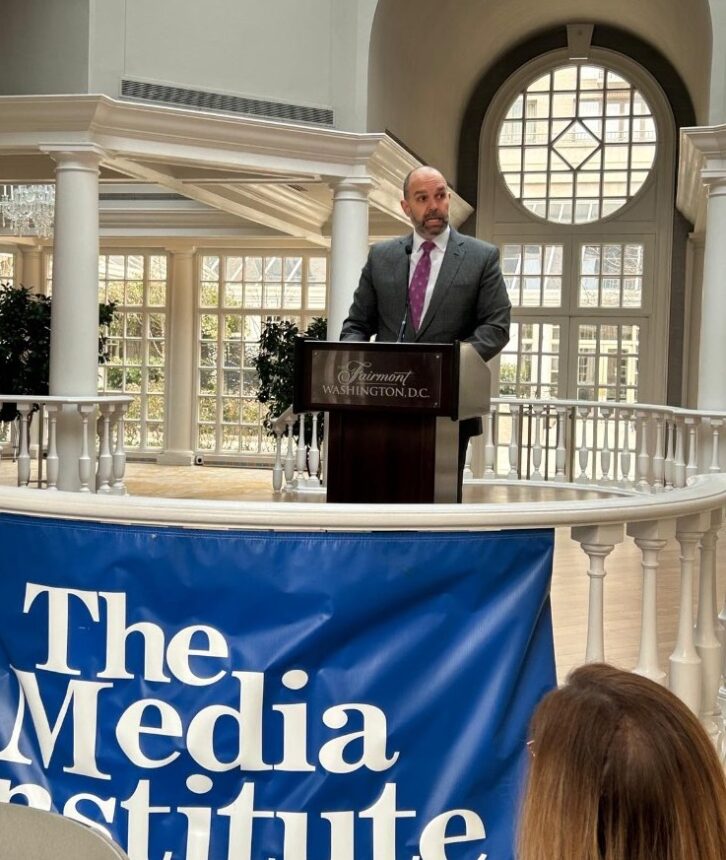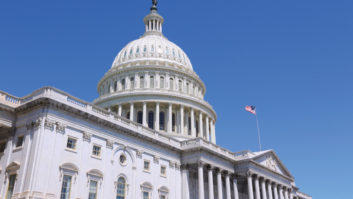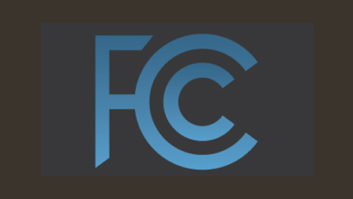
The head of the National Association of Broadcasters says the U.S. government has failed to adapt regulations to a changing media landscape, pushing local broadcasting “to a precipice.”
NAB President/CEO Curtis LeGeyt has pushed this argument many times before. But now he’s making it with a Republican-led FCC and a Trump administration that has shown every willingness to rip up regulatory playbooks.
LeGeyt made his remarks in a speech to The Media Institute’s 2025 Communications Forum. The organization advocates for the First Amendment and a competitive media environment.
He covered familiar ground. First, he said the FCC should eliminate its cap on the national reach of any one television broadcaster; he said it undermines broadcasters’ ability to compete with tech companies like Netflix, YouTube and Amazon, which have no such limit.
He called again for the FCC to ease or remove its local TV and radio ownership rules, describing them as relics.
“Current FCC rules largely prevent TV broadcasters from owning two of the top four-rated broadcast stations in a media market. Not two of the top four most watched video services in a market, just broadcast stations,” he said, according to the text of his prepared remarks released by NAB.
“This ignores the vast array of competition broadcasters now face, from streaming platforms to social media giants. And most importantly the fact that in many markets, communities would be best served by a pool of investment in one or two strong local newsrooms, rather than four under-resourced entities.”
In local radio, he notes, the rules limit the number of stations a company can have in each community, depending on the size of the market.
“This severely limits consumer choice, as well as investment in local radio stations, hindering our ability to innovate, grow and provide more choices for listeners.” Streaming services like Spotify, SiriusXM, Amazon and Apple have no such limits.
“These national and local ownership rules were crafted to promote competition, but in practice they give Big Tech a free pass to dominate and serve audiences with content based on algorithms that reinforce our biases and divide us rather than bring us together,” LeGeyt said.
“In contrast, local stations deliver content that is meant to serve our collective community. Yet, we are competing with both arms tied behind our backs. The consequences of this are alarming.”
He said that without government action, the country stands to lose out on journalism, coverage of emergencies and access to live sports. He said that YouTube and TikTok “aren’t on the ground reporting around the clock when wildfires race through neighborhoods or hurricanes destroy entire towns. They don’t send reporters to the Potomac River at night when there is a tragic air disaster or offer reporting based on how that devastating event impacted the D.C. and Wichita communities.”
The NAB did not get what it wanted in the FCC’s most recently completed quadrennial rules review from 2018 or its biennial review of the communications marketplace. But those came with Democrats in the White House and in the FCC chair. A Republican-led commission generally is expected to look more favorably on the idea of deregulating ownership rules. The 2022 quadrennial review has not been completed and could be the vehicle for changes to the remaining ownership rules.
LeGeyt also discussed the challenges facing journalists.
“It’s not easy to report on the deluge of information (and misinformation on social media) that is shaping our world. Especially in cutting through polarized rhetoric to find the truth. And yet, there has never been a more critical time to arm Americans with the facts and let them make their own decisions,” he said.
“To fulfill this mission, our newsrooms must be able to report without fear or favor. This isn’t just a constitutionally protected right — it is fundamental to serving our communities. And it’s a right we’ve had to defend time and time again since our country’s founding.”
New FCC Chairman Brendan Carr has emerged early on in the new Trump administration as a biting critic of many broadcast media and he has received pushback for comments and actions involving organizations like Audacy, CBS, NPR and PBS.
LeGeyt did not mention specific recent actions that prompted his raised concerns. But he said, “Efforts to limit the ability of broadcasters to report the facts hinders the public’s right to know and chills free speech. Americans deserve the full and fair reporting that broadcasters provide and NAB strongly defends our members’ First Amendment rights and their vital role in maintaining an informed public.
“Our democracy relies on journalists’ ability to report the news without the risk of government retribution. In a media environment flooded with social media misinformation and cable news politicization, this role has never been more important.”
The upcoming March 1 issue of Radio World will feature an in-depth interview with Curtis LeGeyt about NAB priorities and concerns for 2025.







